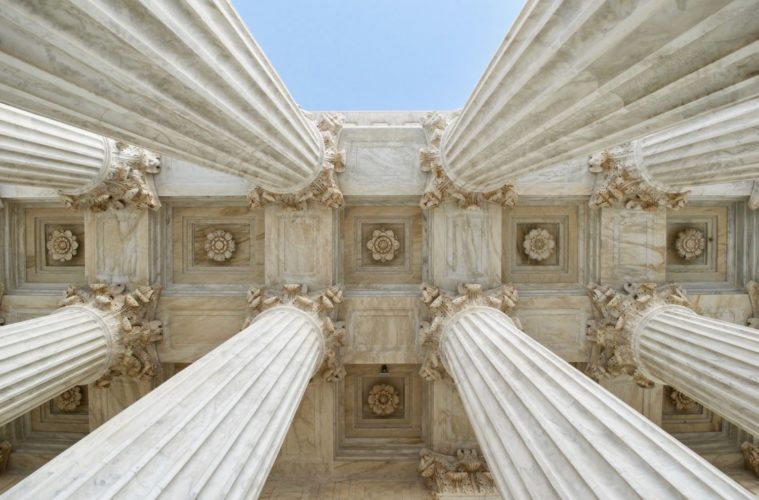In a statement released today, U.S. Supreme Court Justice Clarence Thomas questioned the U.S. government’s authority to impose federal prohibitions on the state-licensed production and sale of cannabis.
Over the course of five pages, Justice Thomas eviscerated the current status quo of marijuana in the U.S. The comments from one of the nation’s leading conservative law minds also speak to how bipartisan the cannabis issue is becoming.
Justice Thomas started his commentary by noting that SCOTUS further empowered Congress to prohibit cannabis cultivation 16 years ago in Gonzales v. Raich.
“Whatever the merits of Raich when it was decided, federal policies of the past 16 years have greatly undermined its reasoning,” Justice Thomas wrote. “Once comprehensive, the federal government’s current approach is a half-in, half-out regime that simultaneously tolerates and forbids local use of marijuana. This contradictory and unstable state of affairs strains basic principles of federalism and conceals traps for the unwary.”
Justice Thomas went on to call Standing Akimbo, LLC, et al., v. United States, the case that led to his commentary, a prime example of all the madness at the federal level. The fact the court is discussing cases like this regarding tax deductions when nearly half of all Americans now live in a state where adult-use is legal is part of the problem.
“Given all these developments, one can certainly understand why an ordinary person might think that the federal government has retreated from its once-absolute ban on marijuana,” Justice Thomas said before pointing to an L.A. Times article about Congress ending the ban on weed. “One can also perhaps understand why business owners in Colorado, like petitioners, may think that their intrastate marijuana operations will be treated like any other enterprise that is legal under state law.”
Thomas went on to state how under this rule, a business that is still in the red after it pays its workers and keeps the lights on, might still face a substantial federal income tax burden, only complicating their situation that is yet profitable. This hit the smallest players the hardest because those who bootstrapped their way this far have the least support to deal with that burden.
“This disjuncture between the government’s recent laissez-faire policies on marijuana and the actual operation of specific laws is not limited to the tax context,” Justice Thomas noted. “Many marijuana-related businesses operate entirely in cash because federal law prohibits certain financial institutions from knowingly accepting deposits from or providing other bank services to businesses that violate federal law.”
The nation’s oldest cannabis reform group, the National Organization for the Reform of Marijuana Laws, weighed in on the statement from Thomas:
“Justice Thomas’ comments reflect what has been obvious to the vast majority of Americans for some time now. With nearly half of all Americans residing in a state where the use of marijuana by adults is completely legal, it is both absurd and problematic for the federal government to continue to define cannabis as a prohibited Schedule I controlled substance,” NORML’s Executive Director Erik Altieri said. “This intellectually dishonest position is in conflict with the available science and the current cultural landscape, and it complicates the ability of states to successfully regulate and oversee state-legal marijuana businesses.”
Altieri argued Justice Thomas’ message was further evidence of the need for reform: “It is time for Congress to end this untenable situation by removing cannabis from the Controlled Substances Act so that states can make their own decisions with regard to marijuana and marijuana commerce free from undue federal interference.”
Advertising disclosure: We may receive compensation for some of the links in our stories. Thank you for supporting LA Weekly and our advertisers.

